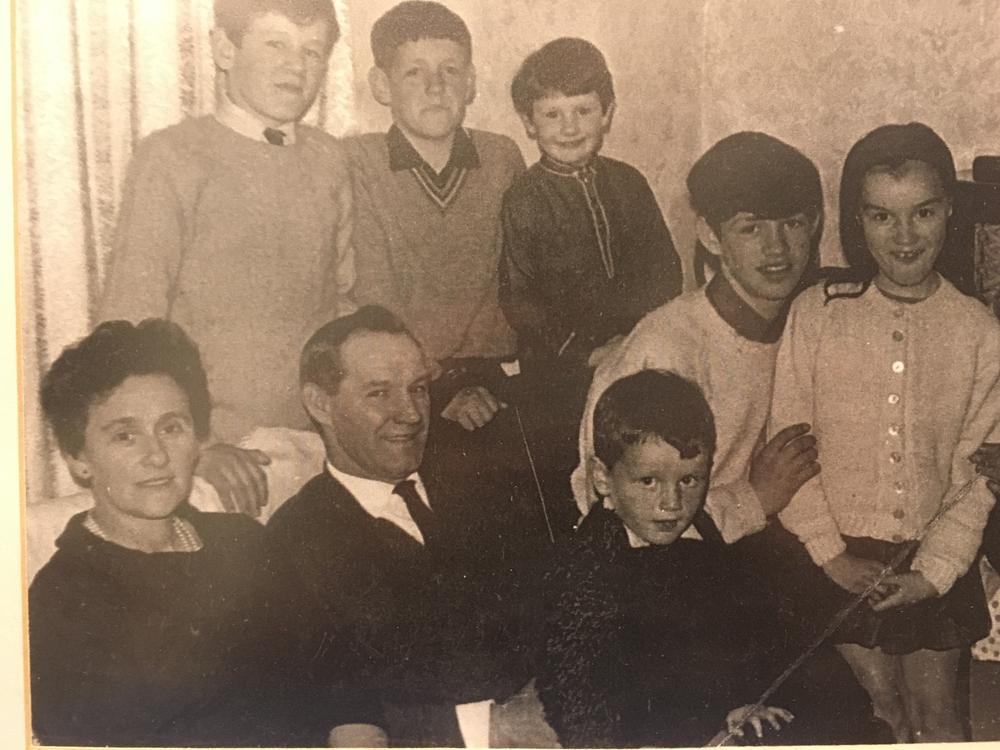
Kathleen Thompson and family
A coroner unlawfully failed to reconsider anonymity granted to a British soldier found responsible for the unjustified killing of a woman in Derry more than 50 years ago, the High Court has ruled.
A judge held that the issue of protecting the serviceman’s identity should have been reviewed before the inquest into the death of mother-of-six Kathleen Thompson closed.
But Mr Justice Scoffield refused to order any reopening of the tribunal because the coroner has since confirmed she would have maintained the veteran’s anonymity.
A lawyer representing the family of Mrs Thompson claimed they had been vindicated by the outcome to their legal challenge.
The 47-year-old was shot dead outside her home as British troops withdrew from the Creggan area of Derry in November 1971.
In June 2022 an inquest held that the bullets had been fired by an unnamed individual identified only as Soldier D in circumstances which were not justified.
The coroner rejected his claims that he believed he was under attack and acted to protect himself and his army colleagues.
Following the inquest verdict lawyers for Mrs Thompson’s family asked for Soldier D’s anonymity to be rescinded and to have him referred to the Director of Public Prosecutions.
Although the coroner did send her findings to the DPP, she concluded the request to lift the veteran’s anonymity could not be reassessed because her functions had been fully discharged by that stage.
Mrs Thompson’s son Billy sought a judicial review of that decision, claiming the verdict reached in the inquest should have triggered reconsideration of shielding Soldier D’s identity.
After proceedings were brought the coroner indicated she would not have removed the anonymity which had been granted on the basis of a potential risk to his life.
Ruling on the challenge, Mr Justice Scoffield set out how Soldier D’s occupation, role and actions were all a matter of public knowledge.
“In some cases where there have been clearly adverse findings in relation to the actions resulting in a death, it may be argued that the balance has shifted to a degree that the public interest in naming an individual found responsible for a death… outweighs the reasons for granting anonymity in the first place,” the judge said.
“The Court of Appeal has clearly indicated that a finding that an individual caused a death by the use of unjustified force may require the issue to be revisited.”
He concluded the coroner did not reconsider anonymity before closing the inquest.
“In my judgment, she ought to have done so… once the core findings in respect of Soldier D’s use of force were clear,” Mr Justice Scoffield held.
“She thereby erred in law, either by failing to take a relevant consideration into account or failing to adequately comply with the duty arising under the principle of open justice to keep the grant of anonymity under review.”
Despite granting the application for judicial review, he refused to quash the closure of the inquest and order reassessment of the issue.
“The coroner has already indicated how she would have approached the matter, and I find no legal error in the approach she has outlined,” the judge said.
“In those circumstances, requiring the coroner to go through the motions of reconsidering the issue again would be unwarranted.”
Outside court, Mr Thompson’s solicitor, Fearghal Shiels of Madden & Finucane, said: “The family have been vindicated in bringing this legal challenge.
“However, we do not share the judge’s assessment that it would have made no difference and will consider an appeal in relation to the relief we sought.”
You must be logged in to post a comment.